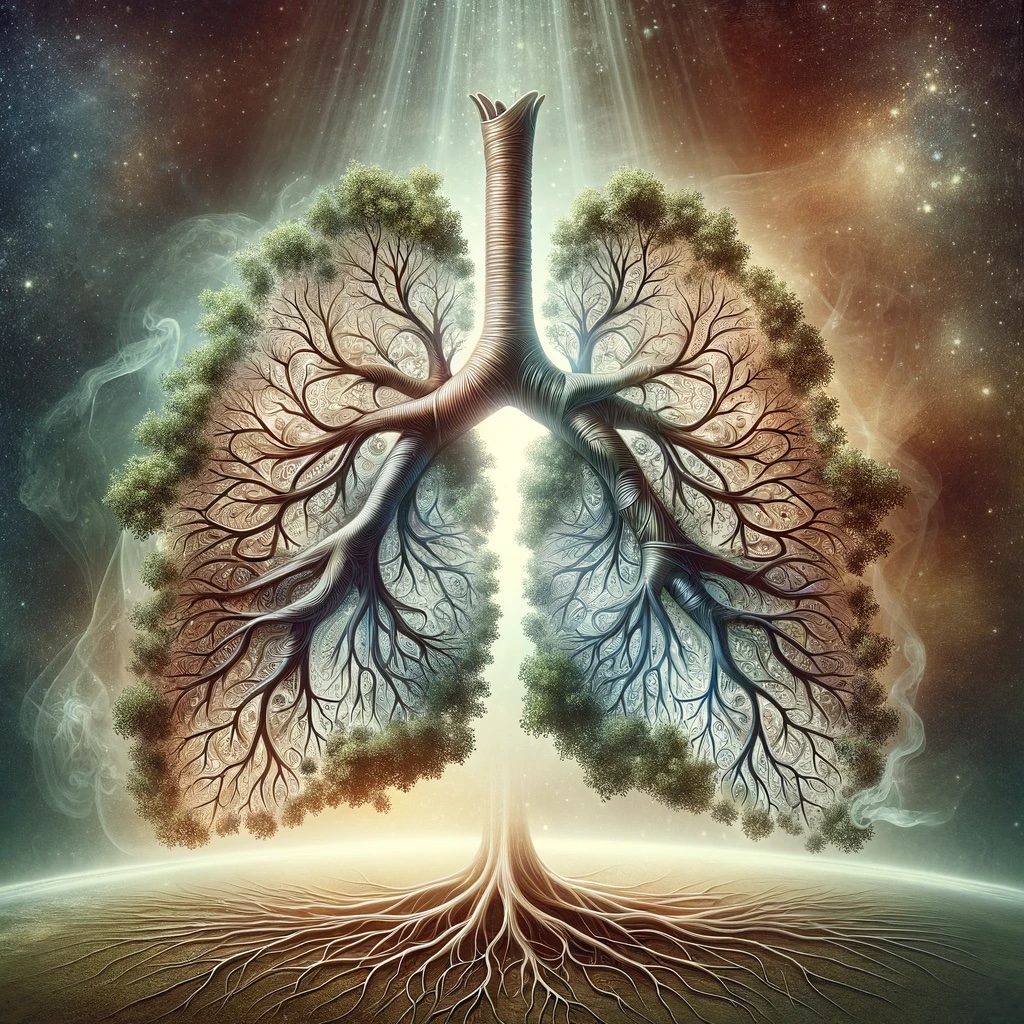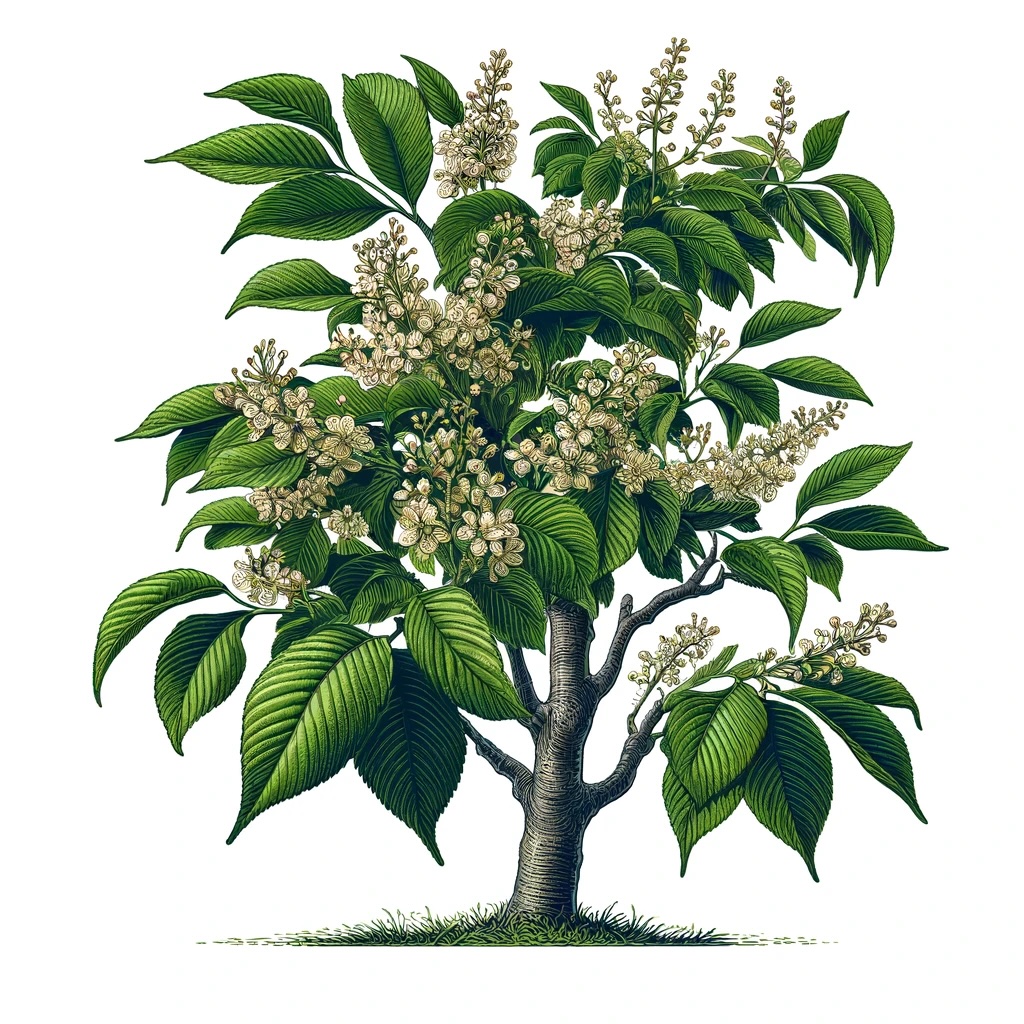This website contains affiliate links for products I use and love. If you take action (i.e. subscribe, make a purchase) after clicking a link, I may earn some tea money, which I promise to drink while creating more helpful content like this.
Welcome to Your Respiratory Health Journey

Breathing is the essence of life, yet we often take our respiratory system for granted. At Herbal Ella, we believe in nurturing every breath you take with the wisdom of nature. This guide will take you through the basics of the respiratory system—the vital process of breathing, its impact on your overall health, and the natural ways you can keep your lungs healthy. Embark on a journey to breathe easier and live better with our insights into respiratory health supported by herbal wisdom.
The information provided on this website is for educational purposes only, and is not FDA approved. It is not to be considered health advice. Always do your own research and seek the guidance of a qualified healthcare practitioner before working with any herb. Herbal Ella is not liable for any action or inaction you take with the materials and information provided. Read here for more information.
What is the Respiratory System?
The respiratory system is a vital network of organs and tissues that help you breathe. It includes everything from your nose to your lungs and is primarily responsible for the exchange of oxygen and carbon dioxide, making it a cornerstone of your overall health and vitality.
Components of the Respiratory System

The respiratory system consists of several key components that work together to ensure that your body receives the oxygen it needs to function and eliminates carbon dioxide, a waste product. Here are the primary parts:
- Nose and Nasal Cavity: The nose is the primary entry for air into the body. The nasal cavity filters, warms, and humidifies air as it’s inhaled, preparing it for safe passage to the lungs.
- Trachea: Often called the windpipe, the trachea filters the air we inhale and branches into the bronchi, which lead directly into the lungs.
- Lungs: These two sponge-like organs are protected by the ribcage. They are the main site for gas exchange and house tiny air sacs called alveoli.
- Alveoli: These tiny structures are crucial for the gas exchange process. They are surrounded by a mesh of tiny blood vessels called capillaries where oxygen enters the blood, and carbon dioxide is removed from the bloodstream.
Each of these components plays a crucial role in your respiratory health, working in harmony to keep the body's oxygen and carbon dioxide levels in balance.
Function of the Respiratory System
The primary function of the respiratory system is to supply the body with oxygen and expel carbon dioxide. The process begins when you inhale air through your nose or mouth, which then travels down the trachea and into the lungs. Here's how the system works:
- Inhalation: Air enters through the nasal passages or mouth, passing through the trachea and bronchial tubes and finally reaching the lungs.
- Gas Exchange: Once in the lungs, oxygen from the air passes through the alveoli into the capillaries. Simultaneously, carbon dioxide in the blood transfers from the capillaries into the alveoli.
- Exhalation: The body expels the carbon dioxide-rich air out of the lungs and up through the respiratory tract, exiting through the nose or mouth.
This intricate exchange is crucial for maintaining the body's pH balance and is instrumental in cellular metabolism. The respiratory system's efficiency directly impacts energy levels, mental clarity, and overall health. By understanding the parts and functions of the respiratory system, we can better appreciate how vital our breath truly is—and how natural remedies like those explored at Herbal Ella can support and enhance our respiratory health.
Importance of Respiratory Health
Maintaining robust respiratory health is crucial for overall well-being and vitality. The lungs are your body's essential organ for oxygen intake and carbon dioxide expulsion, activities that are fundamental to life. Good respiratory health allows for efficient gas exchange, optimal energy levels, and supports the immune system's ability to ward off infections.
In urban environments, maintaining lung health becomes even more critical. Cities can have high levels of pollution from vehicles and industrial activities, which introduce particulate matter, noxious gases, and other pollutants into the air. These contaminants can irritate the respiratory tract, lead to inflammation, and exacerbate conditions like asthma and chronic obstructive pulmonary disease (COPD). Regular exposure to air pollutants has been linked to increased rates of respiratory and cardiovascular diseases, making it essential for urban dwellers to take proactive steps to safeguard their lung health.
Additionally, allergy seasons bring increased levels of pollen and other allergens in the air, which can severely impact those with allergic rhinitis, asthma, and other respiratory conditions. During these times, the respiratory system works harder to filter out allergens and irritants, often leading to inflammation and a heightened risk of respiratory infections.
Understanding the importance of lung health and taking measures to protect the respiratory system are vital. This includes staying in environments with clean air, using air purifiers, practicing breathing exercises to enhance lung capacity, and utilizing herbal remedies known for their supportive properties in respiratory health. By actively maintaining respiratory health, individuals can significantly improve their quality of life, especially in challenging environments like urban areas and during peak allergy seas
Common Respiratory Issues
The respiratory system, while robust, is susceptible to various conditions that can significantly impact health and quality of life. Understanding these common respiratory issues is the first step toward effective management and prevention.
Identifying Respiratory Conditions
Three of the most prevalent respiratory conditions include asthma, bronchitis, and chronic obstructive pulmonary disease (COPD):
- Asthma is a chronic condition characterized by inflammation of the airways that causes difficulty breathing, wheezing, and a persistent cough. Triggers can vary widely, including allergens, exercise, cold air, and stress.
- Bronchitis involves the inflammation of the bronchial tubes, which carry air to and from the lungs. Symptoms typically include coughing, phlegm production, shortness of breath, and fatigue. Bronchitis can be acute or chronic, with chronic bronchitis being a serious condition often associated with COPD.
- Chronic Obstructive Pulmonary Disease (COPD) is a group of lung diseases that block airflow and make breathing difficult. COPD is primarily caused by long-term exposure to irritating gases or particulate matter, most often from cigarette smoke. Symptoms include breathing difficulty, cough, mucus (sputum) production, and wheezing.
It's important to recognize the symptoms of these conditions early and consult a healthcare provider for a proper diagnosis and appropriate treatment.
Preventive Measures
While some factors like genetics cannot be altered, many strategies can help minimize the risk of developing respiratory diseases:
- Avoid Pollutants: Reducing exposure to pollutants and chemicals, especially in urban areas, is crucial. This might mean staying indoors on days when air quality is particularly poor.
- Stop Smoking: Smoking is the leading cause of respiratory diseases like COPD and cancer. Quitting smoking, and avoiding secondhand smoke, can significantly improve lung health.
- Regular Exercise: Engaging in regular physical activity can improve the efficiency of the lungs and help keep your respiratory system strong.
- Healthy Diet: Consuming a diet rich in antioxidants (fruits and vegetables) can help combat the inflammation in the respiratory system that pollutants and allergens may cause.
- Monitor Humidity Levels: Too much humidity can encourage the growth of mold and mites, common triggers for respiratory issues. Using dehumidifiers or humidifiers to maintain optimal indoor humidity and ensuring good ventilation can help reduce these triggers.
- Use of Herbal Remedies: Incorporating herbal remedies known for their lung-supportive properties can be a natural way to enhance respiratory health. Herbs like Mullein, Eucalyptus, and Licorice Root are popular for their effectiveness in supporting clear breathing and overall lung health.
By understanding common respiratory conditions and adopting preventive measures, individuals can take significant steps toward maintaining healthy lungs and improving their overall respiratory health.
Herbal Remedies for Respiratory Health
Herbal remedies have been used for centuries to support respiratory health. Certain herbs are particularly valued for their ability to soothe, protect, and enhance the respiratory system. Below, we provide an overview of three key herbs known for their respiratory benefits: Mullein, Wild Cherry, and Elecampane. Each overview will be linked to a more detailed monograph that explores each herb in depth.
Mullein (Verbascum thapsus)
Mullein is renowned for its soothing and protective properties for the respiratory system. This tall, woolly-stemmed plant is traditionally used to relieve coughs, bronchitis, and inflammation of the airways. Mullein acts as an expectorant, helping to clear congestion from the lungs by loosening phlegm and facilitating its expulsion. This herb is also known for its demulcent properties, where it forms a soothing film over mucous membranes, relieving irritated throats and dry coughs.
- Link to Monograph: Discover more about Mullein
Wild Cherry (Prunus serotina)
Wild Cherry bark is highly regarded for its antitussive (cough suppressing) and expectorant properties, making it a staple in many cough syrups and remedies for respiratory ailments. The bark contains compounds that help relax and soothe the respiratory tract, reducing cough intensity and calming spasmodic coughs. Wild Cherry is particularly useful for treating dry, hacking coughs and can also help calm the nervous system, promoting restful sleep when coughs are disruptive.
- Link to Monograph: Learn more about Wild Cherry
Elecampane (Inula helenium)
Elecampane is celebrated for its potent expectorant capabilities, making it invaluable for conditions such as bronchitis and asthma where clearing mucus from the lungs is necessary for relief. The roots of Elecampane contain inulin, a prebiotic fiber, and several sesquiterpene lactones, such as alantolactone, which are thought to help reduce bronchial spasms and inflammation. This herb is also noted for its antibacterial properties, which can help reduce lung infections commonly associated with chronic respiratory conditions.
- Link to Monograph: Explore the benefits of Elecampane
Integrating Herbal Remedies into Respiratory Care
These herbs can be used in various forms, including teas, tinctures, and capsules, to support the respiratory system. They are especially beneficial during the cold and flu season or anytime respiratory health is compromised. For a holistic approach to respiratory health, consider incorporating these herbs into your routine, especially if you are prone to respiratory issues or live in areas with poor air quality.
Incorporating these herbal remedies provides a natural and effective way to enhance lung health, breathe easier, and fortify the body's defenses against respiratory ailments. For more detailed information on each herb and specific recipes or usage guidelines, please visit the linked monographs. These resources will offer deeper insights into maximizing the therapeutic benefits of each herb, tailored to your health needs.
We hope this exploration into the anatomy and function of the respiratory system has enhanced your understanding of just how vital and fascinating our lungs and airways truly are. At Herbal Ella, we're passionate about empowering you with knowledge that not only enlightens but also inspires you to take active steps towards maintaining and improving your respiratory health.
Next, we invite you to dive deeper with us as we delve into the world of herbal remedies that nurture and support the respiratory system. Our upcoming pages will feature detailed monographs on remarkable herbs like Mullein, Wild Cherry, and Elecampane. These herbal guides will offer a wealth of information on how each herb supports respiratory health, complete with practical tips and recipes to incorporate these natural wonders into your daily wellness routine.
Stay tuned, and remember, every breath is a gift—let's make each one count with the healing power of nature. Join us as we continue this fragrant journey into herbal respiratory care, tailored just for you by Herbal Ella.
Dive Deeper into Respiratory Health with Respiratory Anatomy and Function.
DIY Herbal Remedies for Respiratory Health
Recent Articles
-
Wild Cherry Monograph: Wild Cherry: Nature's Respiratory Ally
May 02, 24 04:52 PM
Discover the healing potential of Wild Cherry with our comprehensive monograph. Explore its benefits and uses for respiratory health. -
DIY Herbal Remedies for Respiratory Health
May 02, 24 03:46 PM
Explore easy DIY herbal remedies for respiratory health with Herbal Ella. Learn to make teas, tinctures, and more to breathe better naturally -
Understanding the Respiratory System - Anatomy and Functions
May 02, 24 03:23 PM
Discover the respiratory system's anatomy and functions with clear visuals and simple explanations to keep you breathing healthily
* Privacy Policy * Disclaimer *









